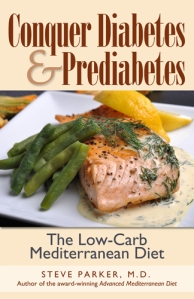
In the study at hand, frailty was measured by exhaustion, weakness, physical activity, walking speed, and weight loss. From the Journal of the American Medical Medical Directors Association way back in 2014:
Abstract
Background and objective: Low intake of certain micronutrients and protein has been associated with higher risk of frailty. However, very few studies have assessed the effect of global dietary patterns on frailty. This study examined the association between adherence to the Mediterranean diet (MD) and the risk of frailty in older adults.
Design, setting, and participants: Prospective cohort study with 1815 community-dwelling individuals aged ≥60 years recruited in 2008-2010 in Spain.
Measurements: At baseline, the degree of MD [Mediterranean Diet] adherence was measured with the Mediterranean Diet Adherence Screener (MEDAS) score and the Mediterranean Diet Score, also known as the Trichopoulou index. In 2012, individuals were reassessed to detect incident frailty, defined as having at least 3 of the following criteria: exhaustion, muscle weakness, low physical activity, slow walking speed, and weight loss. The study associations were summarized with odds ratios (OR) and their 95% confidence interval (CI) obtained from logistic regression, with adjustment for the main confounders.
Results: Over a mean follow-up of 3.5 years, 137 persons with incident frailty were identified. Compared with individuals in the lowest tertile of the MEDAS score (lowest MD adherence), the OR (95% CI) of frailty was 0.85 (0.54-1.36) in those in the second tertile, and 0.65 (0.40-1.04; P for trend = .07) in the third tertile. Corresponding figures for the Mediterranean Diet Score were 0.59 (0.37-0.95) and 0.48 (0.30-0.77; P for trend = .002). Being in the highest tertile of MEDAS was associated with reduced risk of slow walking (OR 0.53; 95% CI 0.35-0.79) and of weight loss (OR 0.53; 95% CI 0.36-0.80). Lastly, the risk of frailty was inversely associated with consumption of fish (OR 0.66; 95% CI 0.45-0.97) and fruit (OR 0.59; 95% CI 0.39-0.91).
Conclusions: Among community-dwelling older adults, an increasing adherence to the MD was associated with decreasing risk of frailty.
Did you notice another good reason to eat fish?
I wonder why the research was published in the Journal of the American Medical Medical Directors Association?
Steve Parker, M.D.













